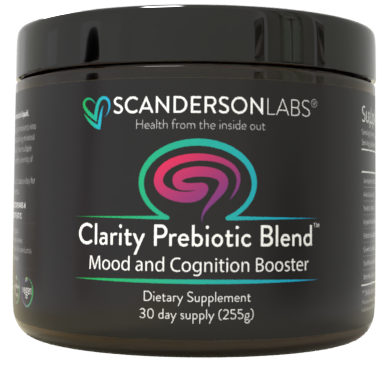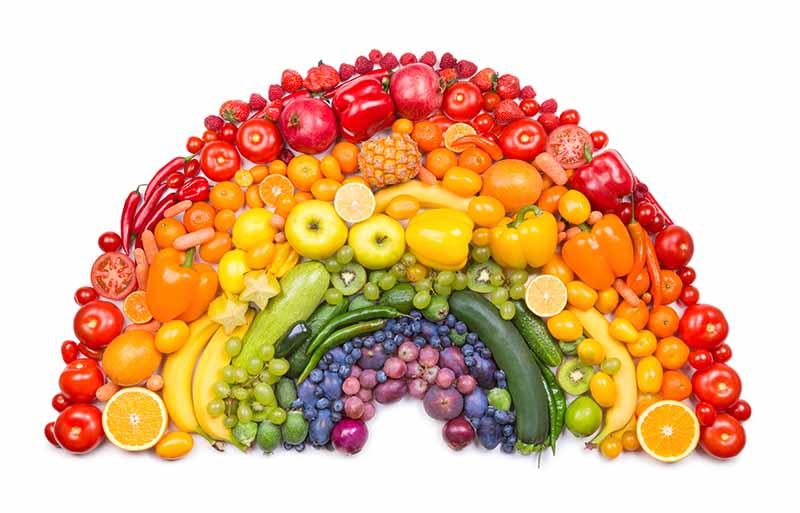Do Microbes Make Us Social?
“Microbes may have influenced the evolution of the social brain and behavior as a means to propagate their own genetic material.” —Cryan, Dinan, et al., Science
Do our gut microbes make us party animals? It sounds preposterous, but nothing beats socializing when it comes to spreading microbes. And, perhaps, nothing beats microbes when it comes to making us social.
Incredibly, microbes may be able to affect our brain and our social behavior. This is an unusual and unnerving observation. Clearly, microbes aren’t the only influence on social behavior; genes and environment play major roles. But the effect of the microbiota is consequential, and fortunately, there are ways to modify it.
If nature, red in tooth and claw, is the harsh side of the evolutionary coin, then sociability and cooperation are the sunnier flip side. Even with underwhelming speed or strength, creatures that maximize cooperation will enjoy an evolutionary advantage. Microbes that can enhance cooperative behavior will expand the territory of both their hosts and themselves, a clear win-win.
Sociability Affects the Microbiota
We’ve known for a while that sociability affects the microbiota. Couples who are close share similar microbes. Simply being married isn’t enough. Only genuine closeness creates this shared microbiota, possibly because kissing can transfer 8 million bacteria per second. These are mostly oral bacteria, but they are still a part of the microbiota. Moreover, some of them can make it through the torturous journey to the gut, where they may set up home. In the right environment, a single bacterium can spawn a colony.
Socializing affects children, too. Kids attend parties where candles are extinguished by blowing onto a communal cake. Preschoolers attend daycare and kindergarten where they freely exchange generous quantities of mucus and microbes. As parents of youngsters know, not all of these microbes are good, and many of them affect adults more seriously than children. Fortunately, most gut microbes play well together, and actually defend against pathogens.
In general, people who socialize more have a more diverse microbiota. That’s important, because, by and large, a more diverse microbiota is a healthier microbiota.
The Microbiota Affects Sociability
Exciting recent research is also revealing the converse: our microbiota affects our sociability. Germ-free mice—born with no bacteria—are anti-social, and their amygdalas develop differently. But if you supplement them with probiotic microbes like Bifidobacteria or Lactobacillus, they start to act like normal mice. Incredibly, that means normal brain development depends on a healthy microbiota!
In response to these probiotic supplements, the amygdala returns to normal and the hypothalamus produces oxytocin, the “cuddle drug.” Oxytocin also encourages the production of dopamine. These, interestingly, are two of the same neurochemicals produced during social interactions. This gives microbes astonishing leverage over your pleasure centers and subsequent behavior. This gut-brain association seems to depend on the vagus nerve: Cut it and the effect disappears.
Studies with mouse models of autism have shown that another probiotic, L. reuteri, can improve sociability. This also seems to be related to oxytocin: blocking the oxytocin receptor also blocks the socializing benefits of L. reuteri. It’s not just mice. Studies with autistic children have shown that selected bacteria can significantly improve their sociability. Healthy people can also become more sociable with the proper pre- and probiotics.
Why would microbes want us to socialize? From an evolutionary perspective, an outgoing host with a healthy gut microbiota should easily outcompete the dyspeptic wallflower in the reproductive game. A microbiota that encourages sociability would therefore have greater fitness.
Microbes Can Also Be Antisocial
Another way that microbes affect sociability—albeit negatively—is through their ability to promote inflammation. When pathogens gain a foothold in the gut, they can make it “leaky.” Bacteria or toxins can then enter the bloodstream, where they get pumped to every organ in the body. This systemic inflammation can lead to sickness behavior, where you just want to crawl into bed with a cup of hot soup. This, clearly, does not promote socializing.
If the inflammation becomes chronic, depression may result—with a similar negative effect on party behavior. Thus, microbes have a remarkable ability to direct us to the sickroom or the ballroom.
As well as systemic inflammation, disorders of the brain including autism, agoraphobia, and schizophrenia often lead to asocial or antisocial behavior. Evidence for a link between these conditions and the microbiota is growing. Targeting the microbiota with dietary changes and probiotics can improve the behavior of these individuals.
Although sociability may spread pathogens, it can also enrich the microbiota. A fundamental task of our microbiota is to protect us against pathogens. Pathogens are prolific, so we need to recruit our own bacteria to fight them. We literally could not survive without our home-grown microbes running interference for us. So it makes sense for us to accommodate them. They, in return, can pump out chemicals that improve our mood.
Look at it from the microbe’s perspective: In order to expand their territory, they can nudge us to socialize more. What could be a better route of transmission than kisses, handshakes, or hugs? These behaviors seem designed specifically to transmit microbes!

BUY ON AMAZON
Optimize Your Microbiota for a Better Social Life
Your gut microbes have 100 times more genes than you do. That means that the microbial metropolis in your gut represents the bulk of your genetic machinery. Perhaps it is time to treat it better. The good news is that you can change your microbiota. Your history is not your destiny.
In these pandemic days, socializing can be dicey. But there are other ways to promote a diverse microbiota:
- Eat a wide variety of veggies and fruit. Concentrate on foods that are high in fiber, like artichokes, beans, onions, and berries. Gut microbes love fiber, and in return, they will produce fatty acids like butyrate that can heal and nourish your gut lining.
- Eat fermented foods. There are tons of them to choose from, including yogurt, kombucha, kefir, sauerkraut, kimchee, pickles, and more. Choose ferments with live cultures and they will help you build a diverse microbiota.
- Try Supplements. If you just can’t get enough veggies and ferments into your diet, you might try a probiotic or prebiotic supplement. Choose one with a good blend of ingredients to promote a diverse microbiota.
- Exercise. Exercise affects the liver’s production of bile acids, which are consumed by bile-loving gut microbes. They produce “secondary” bile acids, which kill pathogens and are consumed by beneficial microbes, spreading diversity throughout the microbiota. Even a brisk walk helps.
As incredible as it seems, microbes may have influenced the evolution of our brains and our social behavior in an effort to propagate their own genes. For headstrong human hosts, that’s more than a little humbling. Still, humans are naturally gregarious, so it doesn’t take much of a push—and as long as we’re both on the same team, what do we have to lose?
References
Sherwin, Eoin, Seth R. Bordenstein, John L. Quinn, Timothy G. Dinan, and John F. Cryan. “Microbiota and the Social Brain.” Science 366, no. 6465 (November 1, 2019).
Erdman, S. E., and T. Poutahidis. “Microbes and Oxytocin: Benefits for Host Physiology and Behavior.” International Review of Neurobiology 131 (2016): 91–126.
Vuong, Helen E., and Elaine Y. Hsiao. “Gut Microbes Join the Social Network.” Neuron 101, no. 2 (January 16, 2019): 196–98.
Stilling, Roman M, Gerard M Moloney, Feargal J Ryan, Alan E Hoban, Thomaz FS Bastiaanssen, Fergus Shanahan, Gerard Clarke, Marcus J Claesson, Timothy G Dinan, and John F Cryan. “Social Interaction-Induced Activation of RNA Splicing in the Amygdala of Microbiome-Deficient Mice.” Edited by Elaine Y Hsiao. ELife 7 (May 29, 2018): e33070.



